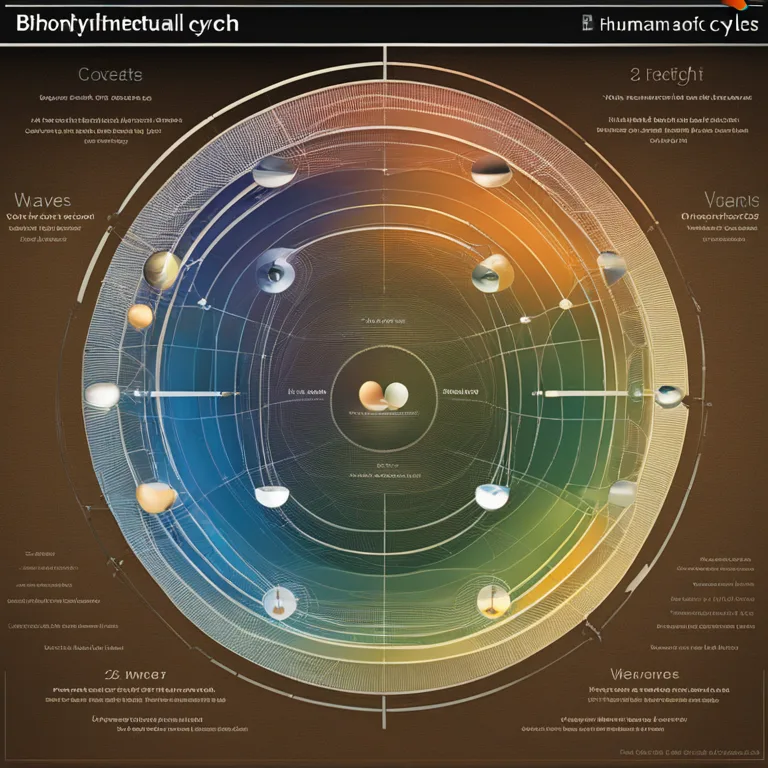
Are Biorhythms a Reliable Predictor of Well-Being?
Delve into the accuracy of biorhythms as a tool for predicting physical, emotional, and intellectual states in our life.
article by Adrian Wallace
What Are Biorhythms?
Biorhythms constitute an intriguing concept suggesting that human life is influenced by rhythmic cycles. Developed in the early 20th century, these cycles purportedly affect our physical, emotional, and intellectual faculties. Central to biorhythmic theory is the premise that from birth, each of these faculties ebbs and flows in predictable patterns: a 23-day physical, a 28-day emotional, and a 33-day intellectual cycle. Modern proponents of biorhythm theory offer personalized charts and predictions, claiming that by tracking these patterns, individuals can forecast their peak days for various activities or identify periods of caution and vulnerability.

Scientific Scrutiny and Evidence
Despite its longstanding presence, the validity of biorhythms as a scientific theory has been widely debated. While enthusiasts point to anecdotal instances of accuracy, the scientific community demands empirical evidence, which remains scant. Several studies carried out in the late 20th century sought to establish a correlation between the biorhythmic cycles and life events such as accidents or performance in tasks, but results largely indicated no significant association. As of 2024, no substantial scientific evidence has emerged to support the precise predictability of these biorhythmic cycles.

The Placebo Effect and Personal Belief
The apparent accuracy of biorhythms for some may be attributed to psychological factors like the placebo effect or confirmation bias. Individuals who genuinely believe in the notion of biorhythms might perceive a greater alignment between their experiences and the predictions. This belief alone can potentially impact their subjective well-being or their interpretation of events. Consequently, while biorhythms might not hold scientific accuracy, they could still have a psycho-emotional influence on those who place their faith in them.

Technology and Biorhythms
The advent of sophisticated algorithms and personalized data tracking through apps and wearables has renewed interest in physiological monitoring. While these developments do not confirm the traditional concept of biorhythms, they have highlighted the importance of understanding individual patterns in sleep, activity, and mood. In this context, modern interpretations of biorhythms are more closely aligned with personalized health data analytics, which could provide a more grounded, albeit different, approach to forecasting well-being.

Integrating Biorhythms into Holistic Practices
Although lacking in rigorous scientific backing, biorhythms have found a place within holistic and new age practices. In these contexts, biorhythms are often incorporated with astrology, meditation, and other wellness philosophies to create a comprehensive lifestyle approach. Such integrative practices emphasize the subjective experience over empirical validation, focusing on individual resonance with the concept rather than universal applicability.
Conclusion
In conclusion, the accuracy of biorhythms as a scientific predictor is not supported by empirical evidence. However, for some, biorhythms remain a valuable component of personal wellness routines and holistic beliefs. As technology evolves, perhaps the collection and analysis of personalized data will pave the way for a new understanding of rhythmic patterns in our lives, albeit one that may diverge from the original biorhythmic principles.
Published: 12/28/2023
Modified: 12/28/2023
More predictions
Come back here soon to learn more about yourself and your future


Exploring Human Biorhythmic Cycles
Explore the fascinating concept of biorhythms and their influence on physical, emotional, and intellectual faculties in humans.


The Reality Of Biorhythm Compatibility
Unravel the truth behind biorhythm compatibility and its role in personal relationships and daily life.


Biorhythm Compatibility: Fact Or Myth?
Explore the concept of biorhythm compatibility to discover if there's a real connection between our biocycles and relationship harmony.